 Web Content Viewer
Web Content Viewer
 buscador
buscador
 Web Content Viewer
Web Content Viewer
Strategic partners
May 26, 2025

SBN-SNC Strategic Alliances
From the Environmental Management Directorate and the Climate Change Department, we employ various actions to enable the provision of carbon credits through Natural Climate Solutions projects. We are working on methodologies, protocols, baselines, and early investment. These projects are also monitored comprehensively (biotic, economic, and social), ensuring that, in addition to providing technical information and protecting strategic ecosystems, opportunities are generated to improve the living conditions of local communities, responding to the socio-environmental challenges defined by the IUCN Standard for Nature-Based Solutions.
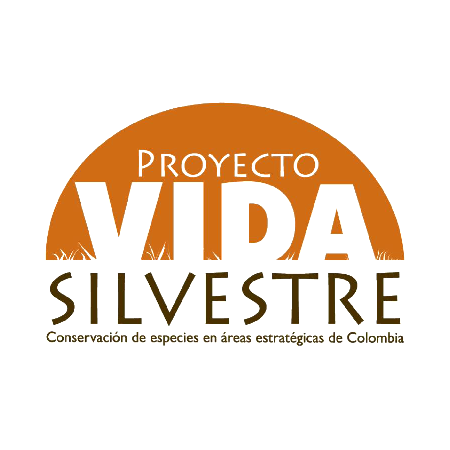 1. Wildlife Project
1. Wildlife Project
The Wildlife Project (PVS) is a biodiversity conservation initiative funded by Ecopetrol that began in 2014, with the Wildlife Conservation Society (WCS) as a partner, and with the support of the Santo Domingo Foundation, the Fund for Environmental Action and Children, and local partner organizations that lead actions in the work areas.
The PVS seeks to address the conservation challenge in ECOPETROL's operating landscapes, with the goal of achieving long-term conservation of biodiversity through the implementation of conservation actions focused on meeting the habitat requirements of complementary endangered species populations and generating benefits for human communities.
|
|
Learn in detail about the strategic alliance: Wildlife Project. |
|
|
|
Consult: Wildlife Project Fact Sheet. |
|
|
|
Consult: Booklets and other PVS Products. |
|
|
|
Consult: PVS Wild Notes. |
|
|
|
Consult: PVS Monitoring Program. |
|
|
|
Consult: PVS News. |
|
| Consult: PVS Logbook. | ||
| Consult: PVS Log 2.0 | ||
|
|
Community Testimonials: The Voices that inspire us. |
|
 2. FIBRAS Agreement Essence and territory
2. FIBRAS Agreement Essence and territory
FIBRAS is a cooperation agreement between the Humboldt Institute and Ecopetrol for the planning and management—under sustainable development criteria—of biodiversity and its contributions to well-being in the territories of Huila, Orinoquia, and the Magdalena Medio, based on scientifically based information. Its objective is to strengthen the sustainable development of these areas of interest through the conservation and sustainable use of biodiversity.
The alliance between Ecopetrol and the Alexander von Humboldt Institute, launched in 2019, has achieved significant progress in biodiversity through 2023. Key results include the consolidation of biodiversity plans in six eco-reserves, the first catalog of cultivable microorganisms in Colombia, wildlife monitoring with 600 camera traps, and the generation of 194 species distribution biomodels. Additionally, 252 plant species with sustainable potential were recorded, and 10.5 million hectares were analyzed to optimize conservation investments.
Thanks to these advances, a new phase of the alliance, called Fibras, was signed in 2024. This will strengthen comprehensive biodiversity monitoring through camera trapping, environmental DNA, and advanced sequencing technologies. A strategy for social appropriation of knowledge will also be implemented to improve science-based decision-making and raise awareness about biodiversity among various stakeholders
|
|
Learn more about the strategic alliance: FIBRAS. Essence and territory. |
|
|
|
||
|
|
Consult: Ecoreservas technical sheet. |
|
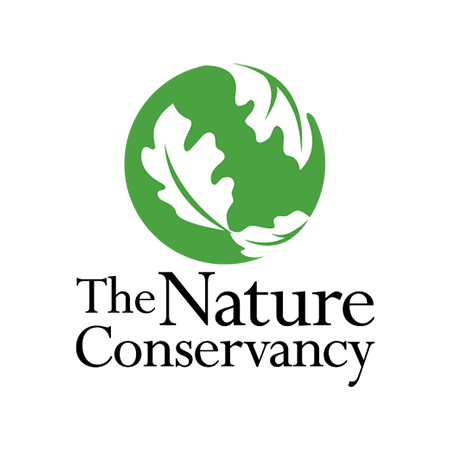 3. The Nature Conservancy - Bioeconomy Agreement
3. The Nature Conservancy - Bioeconomy Agreement
Ecopetrol, in partnership with The Nature Conservancy (TNC), signed this agreement at the end of 2024 with the goal of generating technical input for the consolidation of a national bioeconomy strategy. In the context of the energy transition, this initiative seeks to strengthen national and regional spaces that promote bioeconomy strategies for the country's sustainable development.
The agreement will also support the generation of technical inputs in the bioeconomy aligned with the National Biodiversity Plan and the implementation of the Kunming-Montreal Global Biodiversity Framework (MGBKM), thus contributing to the preservation and sustainable use of natural resources in Colombia.
|
|
Learn more about the strategic alliance: TNC-Bioeconomía |
|

4. ISA Alliance- Jaguar Connection.
Jaguar Connection is ISA's sustainability program, which it develops together with technical partners South Pole and Panthera to contribute to the conservation of biodiversity, the mitigation of the impact of climate change, the development of rural communities, and the connectivity of the jaguar's natural habitats in Latin America, which coincide with the territories where the company operates.
 4.1 ISA REDD+ Project Magdalena Valley Middle
4.1 ISA REDD+ Project Magdalena Valley Middle
This is a REDD+ (Reducing Emissions from Deforestation and Forest Degradation) project located in the Magdalena Medio region that seeks to actively contribute to the conservation and ecological connectivity of the Barbacoa swamp, which is currently threatened by extensive livestock farming.
The project's main objective is to conserve and increase the connectivity of the forests and wetlands of the Ciénagas de Barbacoas DMI (Mississippi Inlet) by restoring riparian forests, enriching secondary forests, and converting pastures to agroforestry and silvopastoral systems on properties with conservation agreements.
|
|
Learn more about the strategic alliance: ISA Jaguar Conection. |
|
|
|
Learn more about the strategic alliance: ISA REDD+ Magdalena Valley Middle. |
|
| Consult: Sheet SA REDD Project | ||
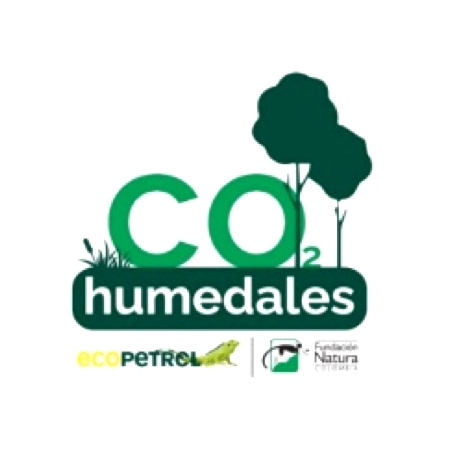
5. CO2 Wetlands Project in the Magdalena Medio
CO2 Wetlands is a project that seeks to conserve and restore tropical forest ecosystems nationwide and freshwater wetlands in the Magdalena Medio and Magdalena Bajo regions, as well as to formulate and implement actions to mitigate GHG emissions generated by the degradation of these ecosystems.
|
|
Learn more about the strategic alliance: CO2 Wetlands in the Magdalena Middle. |
|
|
|
Consult: Technical Sheet CO2 Wetlands Project in the Magdalena Middle. |
|

6.Cataruben Foundation - Carbon in the Orinoco
Orinoco Carbon is a specific agreement between the Cataruben Foundation and Ecopetrol through which they seek to select 400,000 hectares in the departments of Meta and Vichada, to reduce greenhouse gas emissions (GHG) by preventing the transformation of natural ecosystems (savannahs and forests) on multiple private properties, as a strategy to encourage biodiversity conservation in the landscape of the Colombian Orinoco highlands.
|
|
Learn more about the strategic alliance: Cataruben Foundation - Carbon in the Orinoco. |
|
|
|
Consult: Cataruben Foundation Fact Sheet - Carbon in the Onoco. |
|
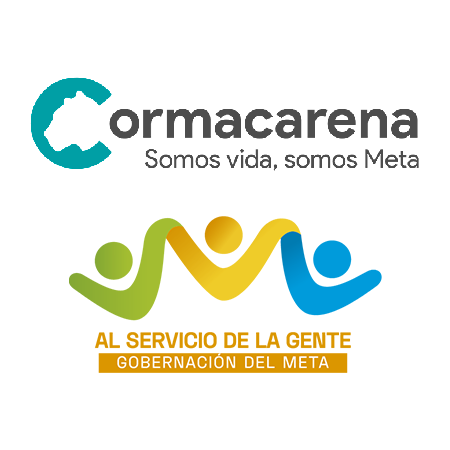
7. Cormacarena and Meta Governorate
The Cormacarena Regional Autonomous Corporation, the Meta Governorate, and Ecopetrol have established a cooperation agreement to develop a Payment for Environmental Services (PES) scheme in strategic ecosystem areas in the middle and upper basins of the Guayuriba and Metica Rivers. The project seeks to provide training, follow-up, and monitoring of the conservation agreements signed with local communities to implement the Payment for Environmental Services (PES) system on various properties. This will promote the conservation of high-value ecosystems such as secondary vegetation in tropical rainforests.
|
|
Learn more about the strategic alliance: Cormacarena and the Meta Governor´s Office. |
|
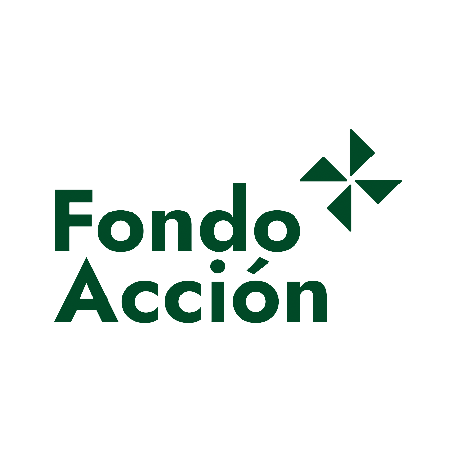 8.Action Fund - Blue and green carbon of the biogeographic Chocó
8.Action Fund - Blue and green carbon of the biogeographic Chocó
Fondo Acción and Ecopetrol have established a cooperation agreement to join forces to promote community initiatives in the Chocó biogeographic region to implement a project to reduce or avoid greenhouse gas (GHG) emissions in the agriculture, forestry, and other land use (AFOLU) sector.
Strategic alliances with the Colombian Institute of Petroleum and Energies of the Transition(CIPET) are developing the CO2 Capture Project
The CO₂ Capture in Natural Sinks project strengthens Ecopetrol's informed decarbonization decision-making through three key pillars:
- Nature Management with Natural Climate Solutions (NCS)
Participatory science is promoted to understand and harness the potential of ecosystems as carbon sinks. Ecological studies, field experiments, and laboratory experiments allow for the quantification, monitoring, and modeling of carbon present in ecosystems, as well as the evaluation of the economic viability of these initiatives. - Technology Adaptation:
Technologies are developed and adapted to reduce uncertainty in greenhouse gas estimation and sequencing. Robust methodologies are designed for quantifying and monitoring carbon projects, ensuring their reliability and transparency. - Integration of local communities and their knowledge
The project fosters a dialogue of knowledge between local communities and experts, promoting their active participation in the design, implementation, and monitoring of Natural Climate Solutions in the territories.
The CO₂ Capture in Natural Sinks Study evaluates and designs methodologies to estimate the capture and storage of greenhouse gases (GHG) in various strategic ecosystems such as wetlands, rainforests, gallery forests, mangroves, moorlands, and high plains.
Throughout the development of this research, various technical challenges have been addressed, such as adapting existing methodologies and implementing pioneering approaches at the national level for GHG monitoring. This has involved the use of cutting-edge technologies and the incorporation of a cross-cutting socioecological perspective.
The study also required a strong ethical framework to guide both the ecological and social research, based on scientific integrity and intersectoral and interinstitutional coordination. This foundation has allowed for strengthening ties with local communities and stakeholders, integrating their needs and opportunities into the ecological and social components of the project.
The following link (geographic viewer) shows the geographic location of these ecosystems in Colombia, according to official data from the Ministry of Environment and Sustainable Development.

Photography: Cristhian Alfonso Pimiento Ordoñez
Learn more about the strategic alliances with the Center for Innovation and Energy for Transition - Colombian Petroleum Institute (ICPET)
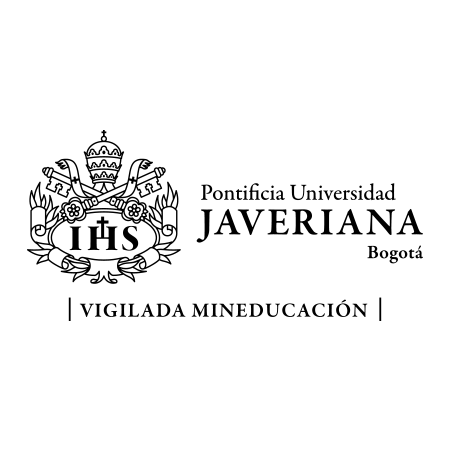 9. Pontifical Javeriana University Bogotá
9. Pontifical Javeriana University Bogotá
What do we do together?
We design and evaluate standardized techniques for capturing and storing greenhouse gases (CO₂, CH₄, N₂O) in ecosystems in the Magdalena Medio, Caribbean, and Orinoquía regions.
We integrate experimental science with advanced monitoring to validate Natural Climate Solutions (NCS) from a biodiversity and sustainability perspective.
|
|
Learn more about the strategic alliance: Pontificia Universidad Javeriana Bogotá. |
|
| Learn more about the strategic alliance: Presentación Alianza Pontificia Universidad Javeriana Bogotá | ||
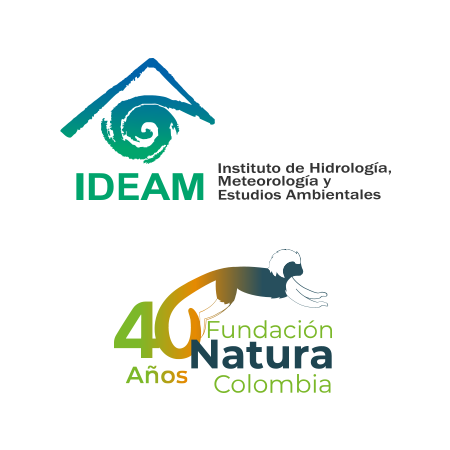 10. Institute of Hydrology, Meteorology and Environmental Studies (IDEAM) and Natura Foundation
10. Institute of Hydrology, Meteorology and Environmental Studies (IDEAM) and Natura Foundation
What are we doing together?
We modernize national land cover mapping with biennial data and develop GHG quantification methodologies aligned with international standards.
We apply spatial and ecological intelligence to facilitate nature-based carbon projects and strengthen the national decarbonization strategy.
|
|
Learn more about the strategic alliance: IDEAM y Fundación Natura. |
|
| Learn more about the strategic alliance: Presentación IDEAM y Fundación Natura | ||
 11. Carbon & Forest Research Center Corporation (C&B)
11. Carbon & Forest Research Center Corporation (C&B)
What do we do together?
We monitor and quantify blue carbon in mangroves in the Colombian Caribbean.
We experimentally validate CNSs focused on restoration, ecological recovery, and coastal conservation, generating replicable models for GHG sequestration in tropical wetlands.
|
|
Learn more about the strategic alliance: Corporación Centro de Investigación Carbono & Bosques (C&B). |
|
| Learn more about the strategic alliance: Presentación Corporación Centro de Investigación Carbono & Bosques (C&B) | ||
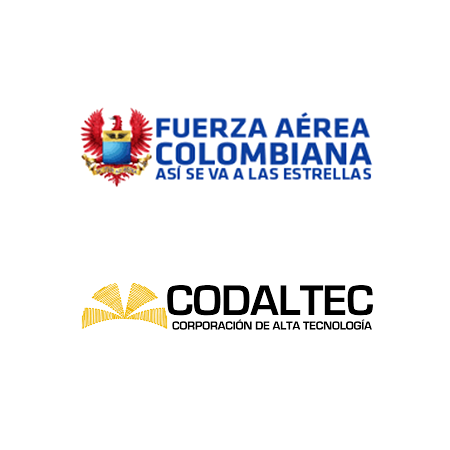 12. Colombian Air Force and CODALTEC
12. Colombian Air Force and CODALTEC
What are we doing together?
We are exploring aerospace science to monitor GHG emissions from space. We launched the FACSAT2-Chiribiquete
nanosatellite , equipped with sensors to study natural and anthropogenic emission sources, in line with a vision of environmental technological sovereignty.
|
|
Learn more about the strategic alliance: Fuerza Aérea Colombiana y CODALTEC. |
|
|
Learn more about the strategic alliance: FAC Y CODALTEC |
||
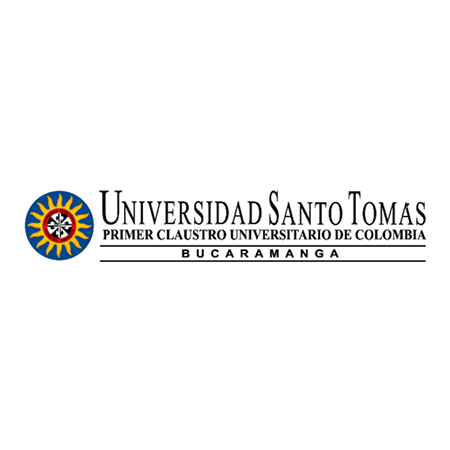 13. Santo Tomás University of Bucaramanga
13. Santo Tomás University of Bucaramanga
What do we do together?
We implement agroforestry systems with cacao as productive carbon sinks.
We validate capture protocols, utilize agroindustrial waste, and promote bioenergy, combining sustainability, food security, and clean rural technologies.
 14. Microsoft
14. Microsoft
What do we do together?
We create a digital platform for the design, modeling, and analysis of Nature-Based Solutions (NBS).
We use IoT sensors, artificial intelligence, and cloud computing to integrate environmental data and model territorial decarbonization strategies with high precision.
|
|
Learn more about the strategic alliance: Microsoft. |
|
| Learn more about the strategic alliance: Presentación Microsoft | ||
 15. Agrosavia
15. Agrosavia
Sustainable Landscapes: Cocoa production that improves the quality of life for producers in Magdalena and La Guajira. We seek to implement sustainable landscapes in cocoa production in the Sierra Nevada de Santa Marta, thereby strengthening the competitiveness of the entire production chain and improving the quality of life for producers, especially women and ethnic communities..
|
|
Learn more about the strategic alliance: Presentación Alianza Agrosavia |
|
| Learn more about the strategic alliance: Alianza Agrosavia | ||
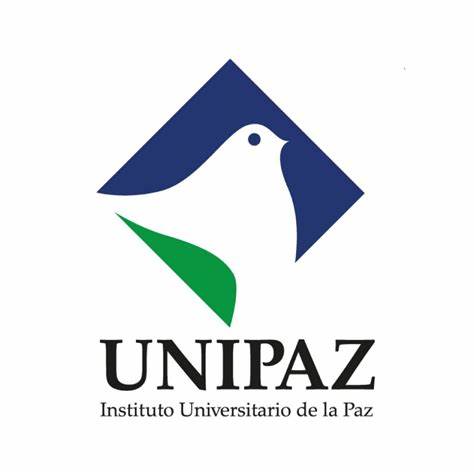 16. University Institute of Peace-UNIPAZ
16. University Institute of Peace-UNIPAZ
Nature and renewable energy: Opportunities in the Middle Magdalena through the management of the region's plants. We investigate the potential of biomass as a renewable energy source, seeking to contribute to a more diverse energy mix and identify alternatives for local economies through science, technology, and innovation.
|
|
Learn more about the strategic alliance: Instituto Universitario de la Paz. |
|
| Learn more about the strategic alliance: Presentación Instituto Universitario de la Paz | ||
 17. Technological University of Pereira – UTP.
17. Technological University of Pereira – UTP.
Bamboo and guadua: nature that captures carbon, builds the future, and generates energy.
In partnership with the UTP (National University of Peru), Ecopetrol is exploring the potential of native species such as guadua and bamboo to address climate change through the bioeconomy. This collaboration combines forestry science, energy analysis, and environmental monitoring to validate these systems as Natural Climate Solutions. From the coffee-growing region to the Orinoco region, we are cultivating research, capturing carbon, and designing a new production model based on sustainability.
|
|
Learn more about the strategic alliance: Convenio Universidad Tecnológica de Pereira |
|
 18. Innovation and Technology Ecosystem – ICPET
18. Innovation and Technology Ecosystem – ICPET
What do we do from within?
Through ICPET, Ecopetrol promotes its own ecosystem of technological and scientific innovation to accelerate nature-based climate solutions. This ecosystem articulates internal capabilities, public-private partnerships, advanced infrastructure, and cutting-edge scientific talent.
We develop our own technologies for:
- Real-time carbon monitoring (Eddy Covariance towers, portable sensors, gas chambers)
- Data integration with geospatial tools, satellite visualization, and predictive modeling
- Technical validation of rural carbon, productive biodiversity, and climate restoration initiatives
- Digital platforms for traceability, certification and visualization of environmental impacts
|
|
Learn more about the strategic alliance: Ecosistema de Innovación y Tecnología |
|